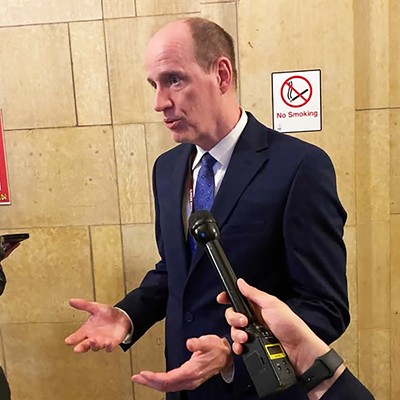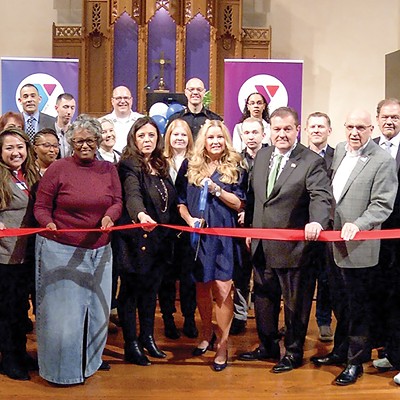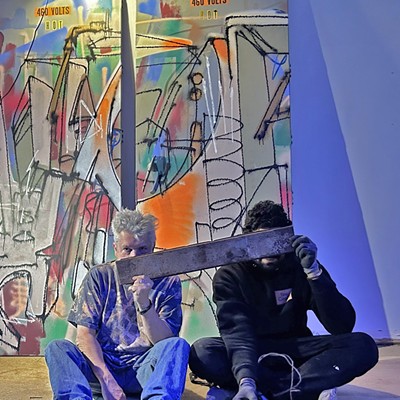Victims of domestic or sexual violence often don’t reach out for help or report incidents to law enforcement. For deaf women, the barriers are even greater. Deaf Wings is an initiative of the Jacksonville Area Center for Independent Living (JACIL) designed to help women deal with the violence they have experienced. Deaf Wings is like the transformation of a caterpillar into a beautiful butterfly – changing and becoming free.
Barriers to reporting include shame, guilt, embarrassment, confidentiality concerns, fear of being judged and not being believed. Imagine the extra difficulties for a deaf person. To whom can she tell her story? Is an interpreter available in an emergency situation at a shelter or hospital? Who will be her voice to communicate with law enforcement? How does she know if the information is conveyed accurately? Who will be her advocate?
According to a report by the VERA Institute of Justice, deaf women in the U.S. experience higher rates of domestic and/or sexual violence, and survivors face barriers to services and support systems. “From 911 systems that only take phone-based calls, to domestic violence programs and rape crisis centers that do not provide bilingual and bicultural services in American Sign Language (ASL), to prosecutors who question the credibility of deaf witnesses, the services and systems designed to respond to domestic and sexual violence are not equipped to meet the unique language and cultural needs of the deaf community.”
Deaf Wings is funded through a grant from the Women for Women fund of the Community Foundation for the Land of Lincoln (CFLL). Becky McGinnis, executive director of JACIL, saw a notice about the grant opportunity and asked her staff for ideas. The issue of domestic violence in the deaf community emerged as a priority. McGinnis contacted Brandie Belford, former executive secretary for the Deaf and Hard of Hearing Commission for the state of Illinois. Belford pulled in Morgan Grant, and both are now part-time employees of JACIL, helping to implement Deaf Wings.
Deborah Berman and Peggy Ryder are members of the Women for Women grant committee. They were both extremely impressed with the women who made the case for this project. “The grants committee was persuaded of the need, and it seemed granting the request would truly make a difference in the lives of deaf people, mostly women, in the larger area of the Land of Lincoln. Jacksonville is known for its support of the deaf community, and many people from the greater surrounding area make use of these services,” said Berman.
Deaf Wings involves three strategies. Volunteers will be certified as Deaf Domestic Violence Advocates and work directly with victims. American Sign Language (ASL) interpreters will receive training in trauma-informed interpreting. Outreach efforts to personnel in law enforcement and the judicial system will focus on increasing sensitivity to the unique characteristics of domestic violence among the deaf population.
Belford and Grant are both deaf and are victims and survivors. They want to help deaf women who have been victimized and prevent people from going through what they have experienced. Belford and Grant developed the Deaf Wings logo with the butterfly image.
Belford says women who are abused are already damaged. They need someone with compassion who also understands their rights. “You are picky about who you share your guts with,” says Belford. She was 14 when her mother had to serve as her interpreter. “No parent should be interpreting for their child,” says Belford. Regulations now require that ASL interpreters have a certain degree of training to interpret in law enforcement situations. However, not all qualified ASL interpreters have been specially trained in trauma-informed interpreting, and police officers may randomly select an interpreter without understanding how crucial the interpreter is to a deaf victim.
Grant emphasizes the importance of clear communication. “There are so many opportunities for miscommunication and not getting a clear picture of the situation,” says Grant. “What is lacking is documentation of the many barriers.” Current systems to respond to domestic and sexual violence are not designed to understand the language and cultural needs of the deaf community.
The first phase of the project is completed – training deaf individuals to serve as deaf-to-deaf advocates for victims of domestic and sexual violence. Deaf Wings is partnering with Deaf Hope, based in Oakland, California. Deaf Hope works to develop new approaches to facilitate change within the deaf community, to break down the systems that perpetuate violence against women and to empower individuals to work toward a life free of violence. Five individuals have completed the deaf-to-deaf advocate training provided by Deaf Hope. Belford points out that the role of interpreters is to “translate,” not to “explain.” That’s where an advocate or Certified Deaf Interpreter can provide an extra layer of support.
Trauma-informed training for ASL interpreters will take place Jan. 12-13 in Jacksonville. Deaf Hope will conduct the training, which will be done in ASL. Master and advanced ASL interpreters are targeted for this training because they are the only ASL interpreters qualified to interpret in medical and legal cases. ASL interpreters throughout Illinois outside the Chicago area are invited to the training. Chicago has the only deaf-focused domestic violence program in Illinois.
The third prong of Deaf Wings is training for law enforcement and judicial system personnel about the unique characteristics of domestic violence among the deaf population and how current procedures result in greater barriers to reporting. Plans are to hold three or four training sessions with law enforcement officers in the Jacksonville area.
Although the JACIL serves Morgan, Cass, Scott and Mason counties, Deaf Wings is not limited to these counties. Any ASL interpreter is welcome to attend the January training. And, deaf victims from Sangamon County and beyond are encouraged to ask JACIL for help.
The program is in the training phase, with the goal to provide direct service to deaf victims of domestic and sexual violence. Survivors like Belford and Grant realize the importance of a support group. Their message is, “If I can do it, you can do it.”
For more information about Deaf Wings or the January ASL training, contact Becky McGinnis at [email protected]. For more information about the Women for Women giving circle, contact Stacy Reed at [email protected].
Karen Ackerman Witter started freelance writing after retiring from a 35-year career in Illinois state government. Her goal is to connect people, organizations and ideas to achieve greater results. She is a member of the CFLL Women for Women giving circle where she learned about Deaf Wings and was inspired by Brandie Belford and Morgan Grant.






















